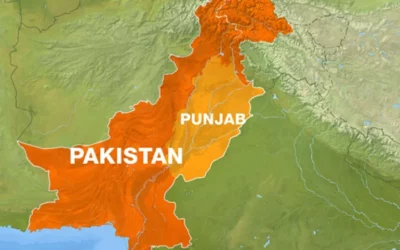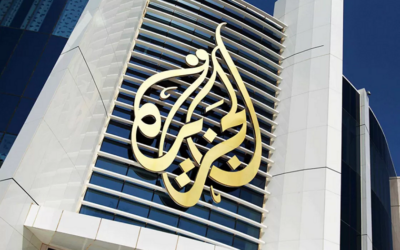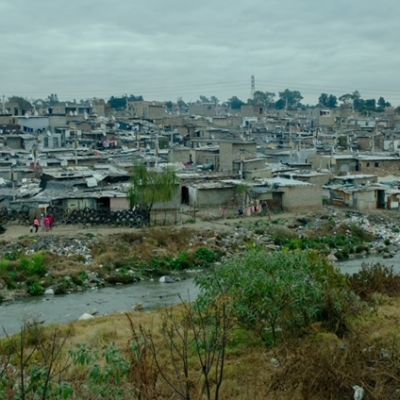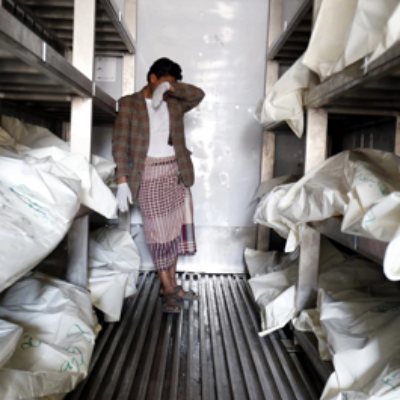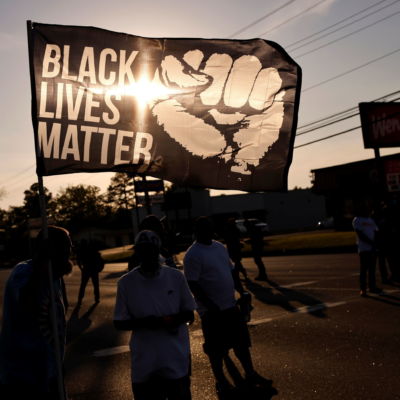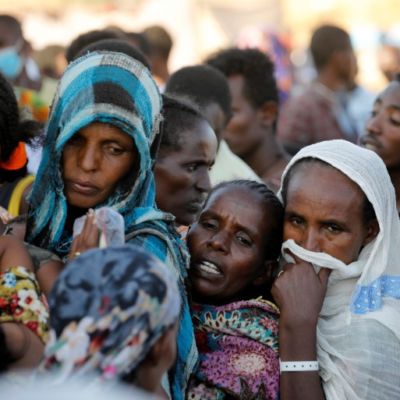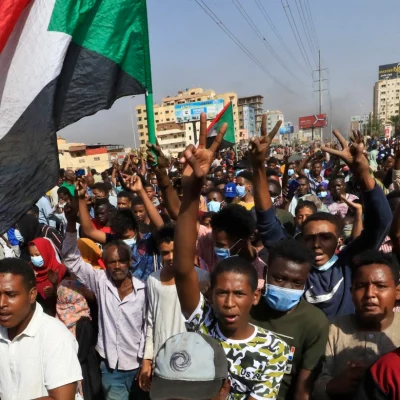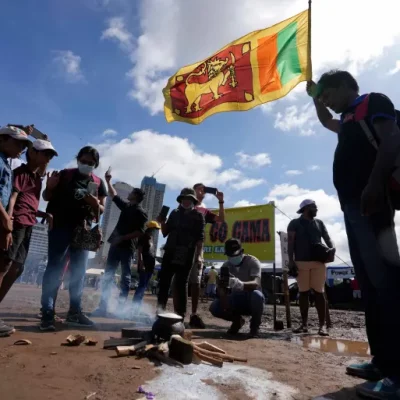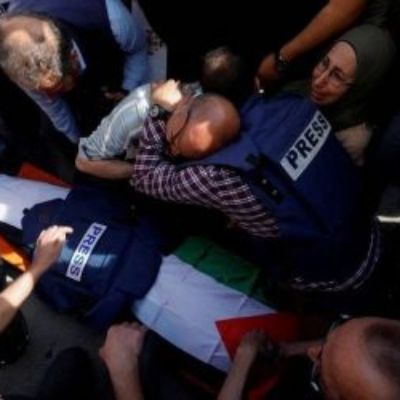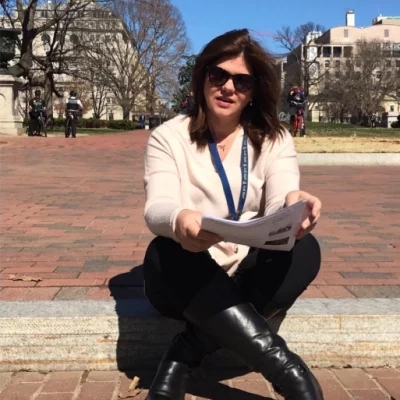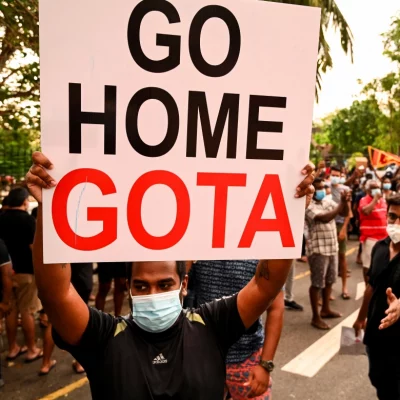Calling out Israeli apartheid: AJ Public Liberties speaks to Omar Shakir
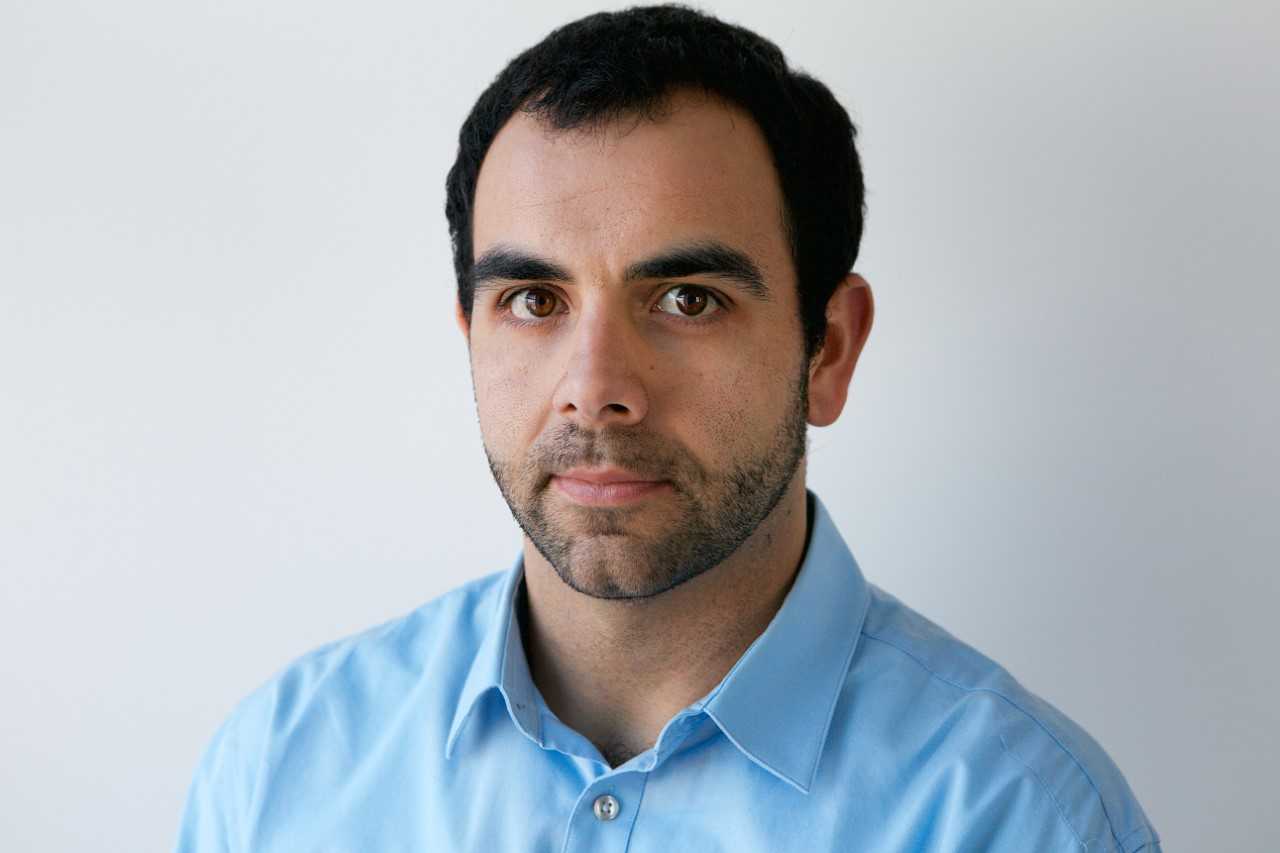
Omar Shakir
Omar Shakir is Israel and Palestine director at Human Rights Watch (HRW).
Prior to his current role, he was a Bertha Fellow at the Center for Constitutional Rights, where he focused on US counterterrorism policies, including legal representation of Guantanamo detainees.
In November 2019 the Israeli Supreme Court ruled that Shakir, an American citizen, should be expelled from Palestine because of his support for boycotts of Israel. He was subsequently deported.
He spoke to Al Jazeera from Amman about the influential Human Rights Watch report concluding that the Israeli government’s domination Palestinians amounts to apartheid, the report’s reception and his advocacy in Israel-Palestine.
Al Jazeera: What prompted Human Rights Watch to undertake the research for the report A Threshold Crossed, Israeli Authorities and Crimes of apartheid and persecution?
Shakir: Human Rights Watch has for years been looking at serious abuses committed by Israeli and Palestinian authorities and discrimination has increasingly become one of the essential themes of our work. We have been looking at particular areas such as: how are Palestinians being treated in East Jerusalem? What is the situation of land inside Israel? But we increasingly felt that that research wasn’t speaking to the actual reality on the ground. So several years ago we decided to step back and look at the way the Israeli government treats Palestinians living in areas in which the Israeli government exercises control. And then we applied the law and reached our conclusions. The timing of our report merely reflects when we completed this research which was in early 2021.
The law on apartheid, which is now a Rome Statute crime, has been around for some time. Naturally on the ground there have been some key developments that have taken place in recent years that made the analysis on discrimination even more urgent.
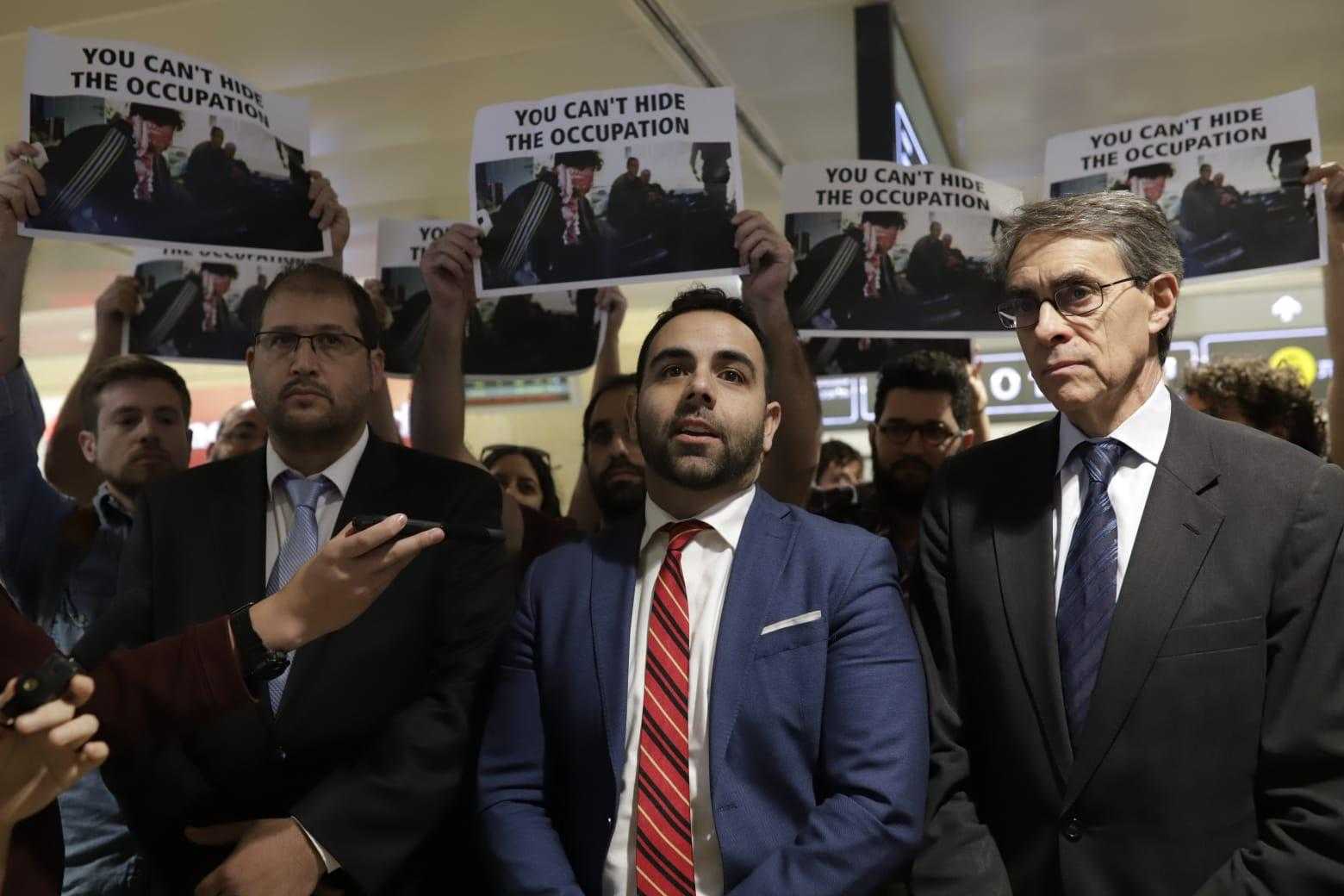
Omar Shakir speaks, alongside his lawyer Michael Sfard (left), Human Rights Watch’s Executive Director Ken Roth (right) and leaders from the Israeli human rights community (behind), at Ben-Gurion Airport on November 25, 2019, the day the Israeli government deported him over his human rights advocacy. [Courtesy of Omar Shakir]
Al Jazeera: Former UN Special Rapporteur on the Situation in the Occupied Palestinian Territories John Dugard used the term apartheid to describe Israel’s practices in the OPT since the early 2000s. Why did it take so long for the term apartheid to be accepted by the international community?
Shakir: Certainly HRW isn’t the first to reach this conclusion or use the term apartheid. Some Palestinians have been using the term apartheid for decades. I think one reason has to do with one of the key elements of the crime which is the intent to dominate. While an argument can be made that the intent to dominate has always been present in the Israel-Palestine context as well as the elements of inhumane acts and systematic oppression, I think there was some debate particularly in the 1990’s and 2000’s about whether or not this was in fact a situation that could be resolved through a political negotiations process.
HRW only makes determinations regarding crimes against humanity when evidence is overwhelmingly clear. We’re not writing legal briefs or making legal arguments. For us as a group that applies the law to the facts, when we did this analysis it became impossible to deny that there is an intent to dominate. And there were several recent events that made that clear. One was of course the passing of the Nation State Law which enshrines as a constitutional value that certain key rights apply only to one of the two groups. And in recent years the mass expansion of settlements was another such event. And, maybe most importantly, while the Israeli government spoke of a temporary situation (arguing that the settlements were temporary) that pretense has changed recently when the Israeli government declared their intention to rule over the West Bank in perpetuity. And this became clear in the debate around annexation. Even though the Israeli government did not go forward with annexation they made it clear that they will ultimately annex.
Much of the world realised that if annexation happens it will become impossible to say that its not apartheid. From a legal point of view apartheid as a crime turns on domination not formal sovereignty. So if you believe that is apartheid under annexation you should believe its apartheid today.
While formal annexation did not take place, de facto annexation has been a process that has been taking place for years and decades and will continue. Organisations, individuals including political figures, and states should start recognising the reality for what it is.
Al Jazeera: Current UN Special Rapporteur on the situation in the Palestinian territories Michael Lynk recently described the creation of the Israeli settlements as a war crime. Why is it important to call the building of the settlements a war crime? And is it likely that Israel will dismantle the settlements?
Shakir: I think the designation of the settlements as a war crime is important in underscoring their illegality – that they constitute a clear violation of international law. Recognising it as a war crime should trigger the international community and companies for example to realise that they should avoid all forms of complicity with that illegality. For too long the international community has dealt with settlements as something to be negotiated, something that we can find a solution to.
There is a disconnect in the Palestinian context between what international law requires and what takes place on the ground. Certainly, there are core policy actions states should take that include removing the settlements from the illegality. When it comes to the work of international organisations that are rooted in the law we make our recommendations that stem from the law and we do so in a way that is universal and objective. We don’t make different assessments based on what is politically feasible or not. The fact that its not considered feasible shows just how far the international community’s engagement is from the reality on the ground.
This is not unique to Israel-Palestine. Some of the places where there is a disconnect between what human rights and international law requires and the policy on the ground are places where active intervention of the international community is the more urgent. And sometimes the road there will consist of small steps.
What is needed is for governments to call on Israel to adhere to their international obligations and to ensure that they are not complicit in apartheid.
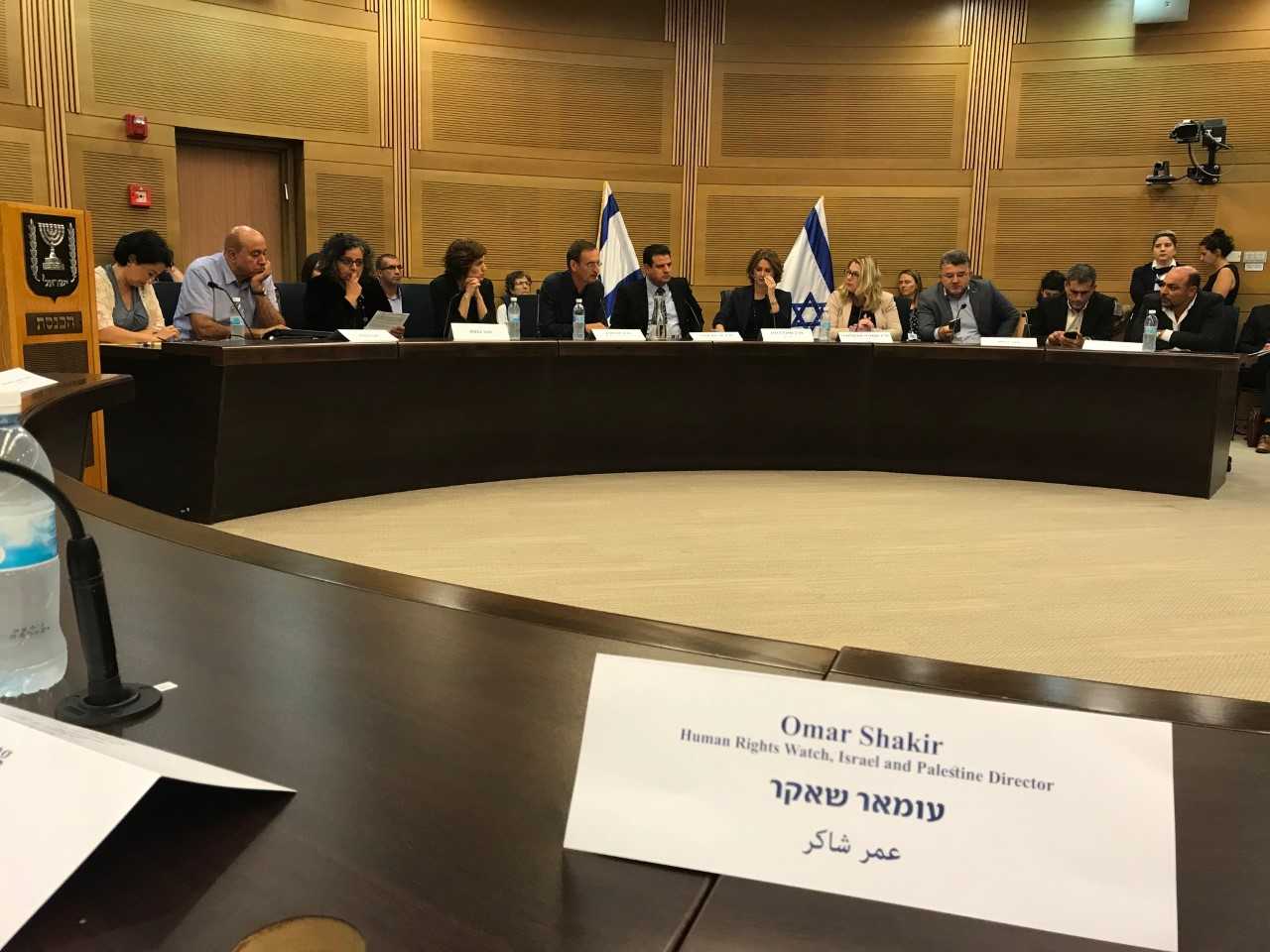
Omar Shakir speaks in July 2018 at a Knesset meeting on the Israeli occupation and human rights abuses. [Courtesy of Omar Shakir]
Al Jazeera: HRW has published a response to the responses you received to the report on apartheid. It seems you did not receive substantive criticism?
Shakir: There has been an absence of substantive challenges to the report. There has been much coverage of the report. Those who are critical of the report have used either ad hominem attacks or strawmen arguments. Much of the response involves comparing South Africa and Israel which is not what HRW did. No one said HRW got the facts wrong or that the elements of the definition of apartheid were not met. It is telling that we did not receive almost any substantive challenges on questions of law or definitions for example.
Human Rights Watch is engaged in dozens of briefings with governments, parliamentarians, legal scholars and others. In almost none of those settings did someone challenge the actual findings of the report. The vast majority of people realise the reality for what it is. They may disagree on HRW’s advocacy strategy for example but few have challenged the legal and factual findings.
Al Jazeera: The crime of apartheid in the South African context has never been prosecuted. What do you think is the likelihood that the ICC will prosecute apartheid?
Shakir: I think it is a very important point to note that there is virtually no case law on apartheid as a crime against humanity. It became one of the forgotten crimes of international law. I think its important to re-establish apartheid as an international crime.
When you look at settlements before the ICC you ask several questions: first, does it fall under the Rome Statute” I think there is little debate that it is a war crime as Michael Lynk recently said. Then you look at the principle of complementarity, at whether Israel has investigated or prosecuted these crimes. There is no effort to investigate or prosecute, quite the contrary. The Israeli government has been active of course in building the foundations of the settlement enterprise with much of it backed up by the Israeli Supreme Court and the entire political system. So there is little doubt on complementarity and that the court will have jurisdiction here. So it becomes more of a question of who are responsible for those crimes.
Al Jazeera: What is the symbolic value of the crime of apartheid?
Shakir: For HRW the focus is the law. The prohibition against apartheid is a peremptory norm of international law. Apartheid as a crime against humanity is also one of the most odious crimes internationally. The world decided after the experience in South Africa that apartheid will be made a universal crime. Crimes against humanity are literally crimes against all of us. There is an obligation on all states to not only end that practice but to end all forms of complicity with it.
This interview was edited for brevity and clarity.
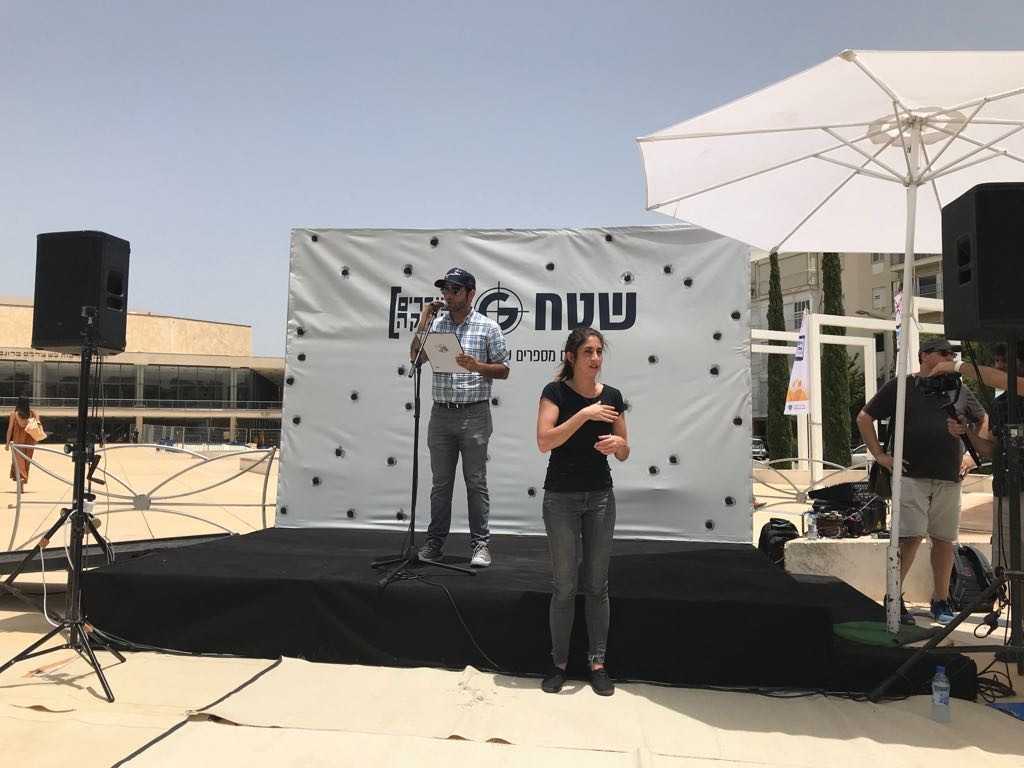
Omar Shakir speaking at an event held by the Israeli group Breaking the Silence. [Courtesy of Omar Shakir]
- Most Viewed
- Most Popular


